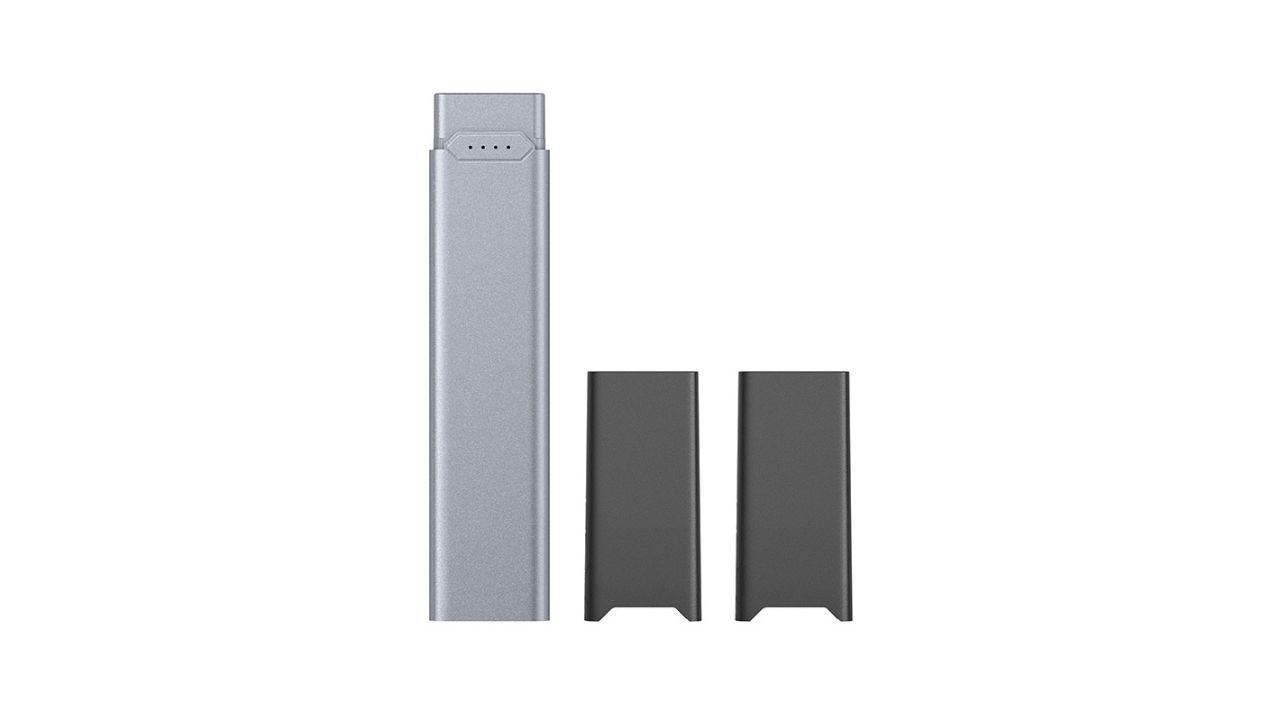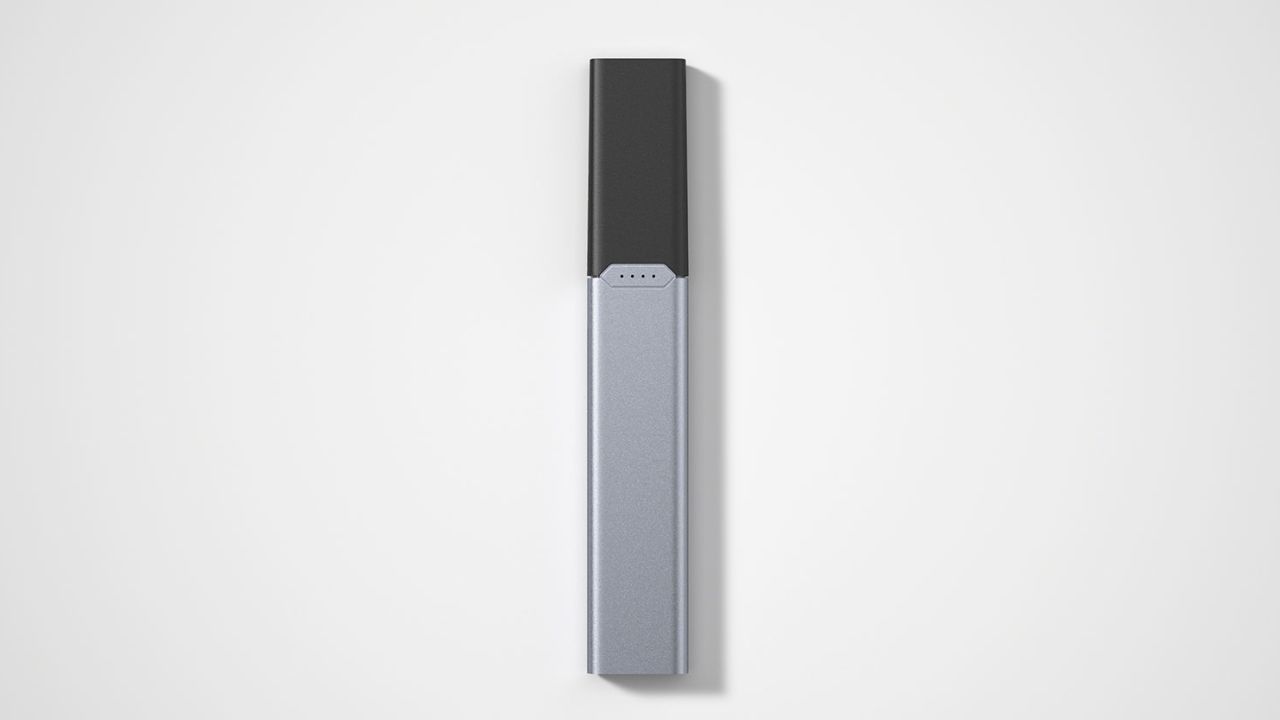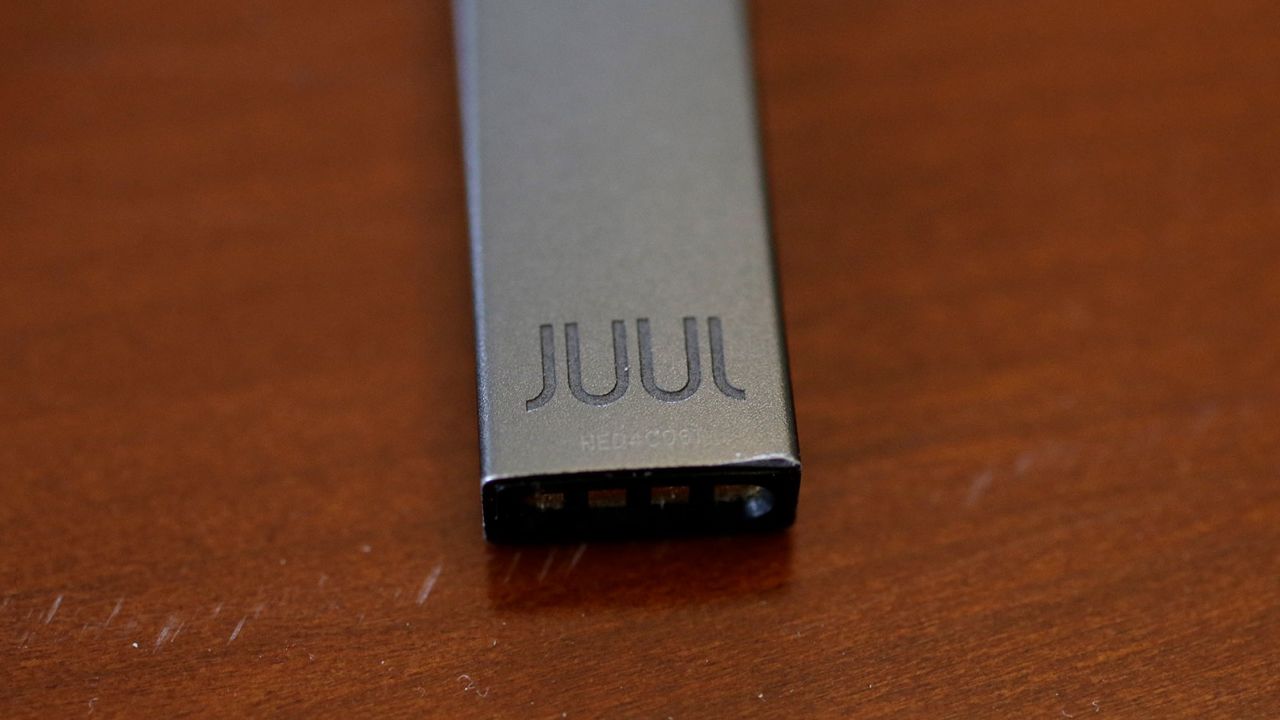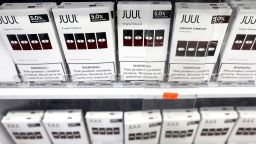E-cigarette company Juul Labs is seeking US authorization to sell a “next-generation” vape with age verification capabilities in the United States.
To verify a user’s age, the proposed vape pairs with a phone app, requiring a customer to either upload their government ID and a real-time selfie or input personal information and allow a third-party database to verify their identity, according to a Juul spokesperson.
A unique Pod ID chip within the Juul device can also detect counterfeit cartridges made by other companies, many of which have flooded the market with illegal fruity flavors that appeal to minors.
The mission of the new platform is twofold, according to the company: Encourage adult smokers to switch from combustible cigarettes to e-cigarettes while restricting underage access.
The legal age to purchase e-cigarettes in the United States is 21.
“We look forward to engaging with FDA throughout the review process while we pursue this important harm-reduction opportunity,” Juul’s Chief Regulatory Officer Joe Murillo said in a company news release.
If authorized by the US Food and Drug Administration, Juul Labs hasn’t yet decided on the name to market their new product in the US. In the UK and Canada, where it’s already for sale, it’s called the JUUL2.
A problematic past

Advertising itself as an alternative nicotine product, Juul publicly advises that adults vape only as a replacement for combustible cigarettes.
But Juul has a troubled history in US markets.
“They were the spark that ignited the flame,” said Robin Koval, CEO of the nonprofit Truth Initiative, organizers of the nation’s largest campaign for youth to quit vaping. “This is not a company known to tell the truth.”
Juul Labs has settled more than 5,000 cases brought by approximately 10,000 plaintiffs since its vaping devices initially skyrocketed in popularity in 2016, with some alleging the company deceived or failed to warn consumers about the risks of its products. The e-cigarette maker also agreed to pay $462 million to six US states and Washington, DC, in April after a lawsuit accused Juul Labs of directly promoting its products to high school students. In total, Juul Labs has agreed to pay more than $1 billion in its various legal settlements.
Juul dominated over 70% of the US e-cigarette market at its peak in late 2018. In the same year, 27% of high school students and 7.2% of middle school students said they used tobacco for one or more days in the month, according to the 2018 National Youth Tobacco Survey.
Juul is now a less favored brand among youth. When asked what e-cigarette brands they used in the past 30 days, youth e-cigarette users in the 2022 National Youth Tobacco Survey answered Puff Bar most frequently (29.7%), followed by Vuse (23.6%) and then Juul (22%).
In 2019, Juul suspended all flavors other than tobacco and menthol and suspended broadcast, digital and print publication marketing.
Even with limited flavors, the FDA banned Juul products in the US last year after reviewing Juul’s applications seeking marketing authorization for their devices. The FDA determined that the applications lacked “sufficient evidence” within the toxicological profile of the vaporizers to prove that marketing the products would be in the interest of public health.
The FDA has placed the ban on hold while Juul Labs appeals.
What we know about Juul’s latest filing

Juul Labs submitted its most recent application to the FDA on July 19, as all e-cigarette manufacturers are required to do before their product can be marketed and sold legally in the United States. This first filing concerns just one flavor, Virginia Tobacco, with a nicotine concentration of 18 mg per mL.
Although Juul’s new platform has age verification capabilities, the company does not intend to lock all their new pods before use. For example, the Virginia Tobacco pods will not come automatically locked. The spokesperson for Juul said doing so could create “friction” for the adult smokers the tobacco flavor is most likely to target.
“If you’re an adult smoker and you go to buy a cigarette, it’s pretty easy to use the product,” a Juul spokesperson told CNN. “If you add in another barrier before product use, that creates some level of friction.”
Using the new Pod ID feature, Juul’s new vaping device could tell a Virginia Tobacco pod apart from a menthol-flavored pod. It could then require age verification to activate only the latter, according to the spokesperson.
Juul has researched other flavors that combine tobacco and menthol with fruity tones to potentially submit to the FDA following this filing. Juul currently sells the flavor Autumn Tobacco in the UK, which contains “tangy apple notes,” according to its website.
Regulating e-cigarettes is “Whac-a-Mole for the FDA,” says nonprofit CEO
Just because e-cigarette companies are required to comply with the FDA doesn’t mean all of them do. In fact, most don’t. To date, the FDA has authorized only 23 specific e-cigarette products, all of which are tobacco flavored.
Yet more than 2.5 million US middle and high school students said they use e-cigarettes as of last year, according to the 2022 National Youth Tobacco Survey. Almost 85% consume fruity, candy or other flavored products, despite them being illegal.
Koval of Truth Initiative said the tobacco industry “floods the market” with products such that the FDA can’t keep up.
“It is a little bit like Whac-a-Mole for the FDA and for those of us who are trying to promote healthier behaviors for young people,” Koval said. The total number of e-cigarette brands increased by 46.2% between January 2020 and December 2022, from 184 to 269, according to a study from the Centers for Disease Control and Prevention.
To gain FDA authorization for its latest platform, Juul must prove to the FDA that in aiding the public health crisis of adult smoking, it is not further exacerbating the spread of youth vaping.
“This is only the beginning of new tech being developed and refined for the US market and abroad to eliminate combustible cigarettes and combat underage use,” Juul’s Chief Product Officer Kirk Phelps said.
Correction: A previous version of this story incorrectly described Vuse products.







